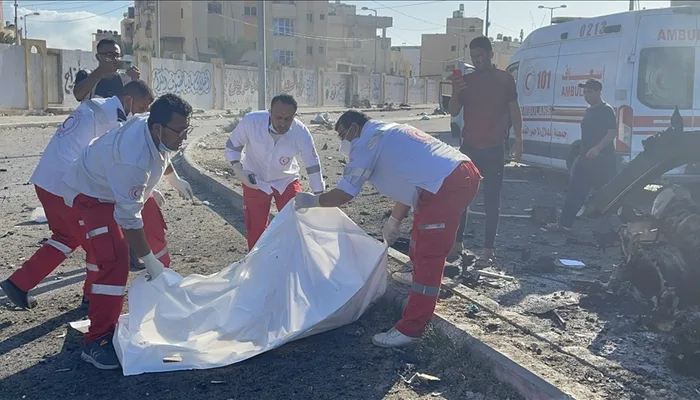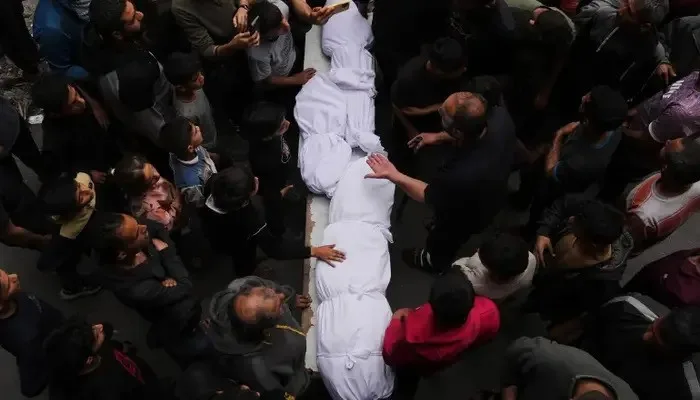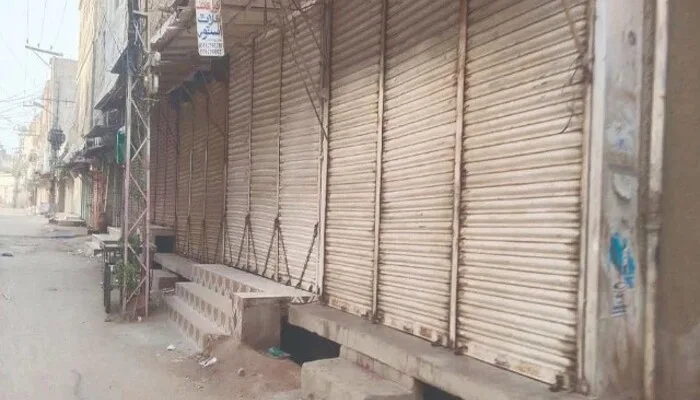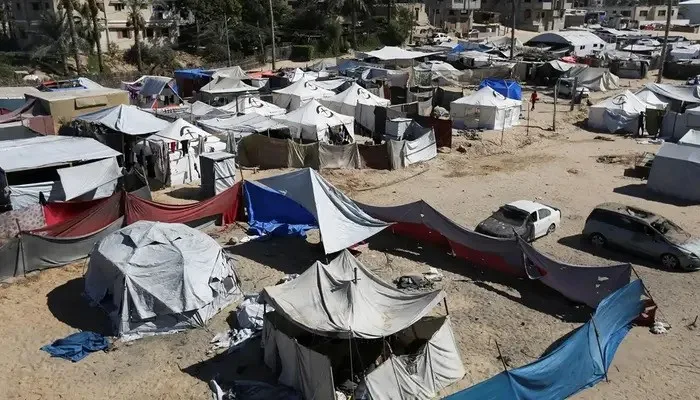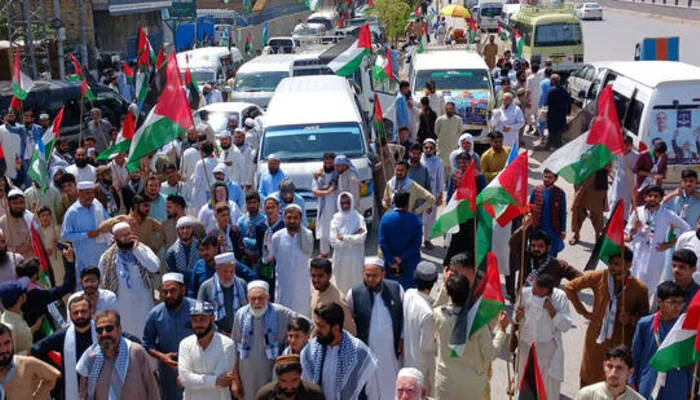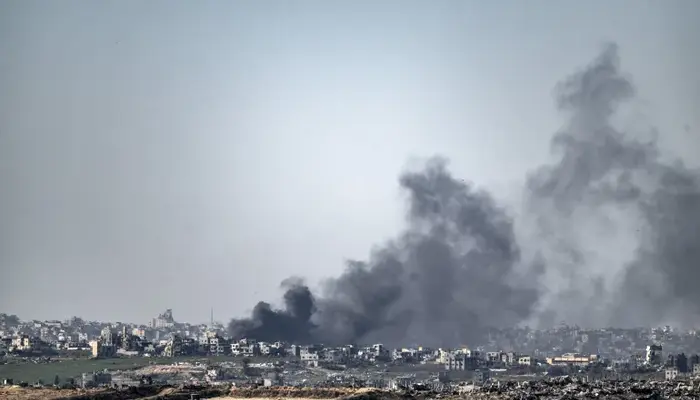Israeli Forces Escalate Gaza Strikes Amid Ceasefire Uncertainty
Hamas Responded to Ceasefire Talks with Skepticism

Israeli forces, on Monday, escalated their military operations near the southern Gaza city of Khan Younis, even as international efforts to broker a ceasefire gained momentum. The ongoing conflict has raised concerns about a potential regional war involving Iran and its allies, further complicating the situation in the Middle East.
Casualties in Khan Younis and Beyond
Palestinian medical officials reported that Israeli airstrikes on Khan Younis resulted in the deaths of at least 18 people and left several others injured. As the violence continued, more families fled their homes, responding to new evacuation orders issued by the Israeli military. The scene in Khan Younis was chaotic, with residents scrambling to find safety amid the relentless bombardment.
In addition to the strikes in Khan Younis, an Israeli airstrike in the Zeitoun suburb of Gaza City claimed the lives of five people. Two more individuals were killed in Rafah, a city located near the border with Egypt. These incidents highlight the widespread devastation across Gaza as the conflict drags on.
Hamas Responds to Ceasefire Talks with Skepticism
As the fighting persisted, Hamas expressed skepticism toward the latest round of peace talks mediated by Egypt and Qatar, which are set to take place on Thursday. The group criticized what it perceives as a lack of genuine commitment from Israel to end the hostilities.
Hamas officials insisted that mediators should pressure Israel to accept a ceasefire proposal based on ideas put forward by U.S. President Joe Biden. Hamas has already agreed to the proposal, but the group remains unconvinced that Israel is serious about reaching a peaceful resolution. “It is a mild rejection you can say,” said a Palestinian official involved in the mediation efforts. “Should Hamas receive a workable plan, an Israeli positive response to the proposal it had accepted, things may change, but so far Hamas believes Netanyahu isn’t serious about reaching a deal.”
Two sources close to Hamas suggested that the new call for talks might have been pre-coordinated with Israel to prevent retaliatory actions from Iran and Hezbollah, following the assassination of Hamas leader Ismail Haniyeh in Tehran and a senior Hezbollah commander in Beirut.
Escalating Military Preparations
Amid the escalating tensions, preparations for a broader conflict have intensified. The United States has ordered a guided missile submarine to the Middle East, and the Abraham Lincoln strike group has accelerated its deployment to the region. These moves signal Washington’s concern over the possibility of a large-scale military confrontation.
Israeli Defense Minister Yoav Gallant reportedly informed U.S. Defense Secretary Lloyd Austin that Iran is preparing for a significant military attack on Israel. This information, shared by journalist Barak Ravid of Axios News, has heightened fears of a broader regional war.
Israel has been on high alert since last month when a missile strike killed 12 children in the Israeli-occupied Golan Heights. In response, Israel targeted a senior Hezbollah commander in Beirut. The situation escalated further the following day when Hamas political leader Ismail Haniyeh was assassinated in Tehran, prompting Iran to vow retaliation against Israel.
Gaza’s Humanitarian Crisis Deepens
The ongoing conflict, now in its 11th month, has plunged the Middle East into deeper turmoil. Israeli forces have devastated Gaza, displacing the majority of the population and killing approximately 40,000 people, according to the Palestinian health ministry. The war has sparked international outrage and horror, with images of the destruction in Gaza resonating worldwide.
On Saturday, a deadly Israeli airstrike targeted a school building in Gaza City, killing scores of people. The Israeli military claimed the strike targeted fighters from Hamas and Islamic Jihad, but both groups denied that any of their fighters were present in the building. On Monday, the Israeli military released a document with the names and details of 31 fighters it claimed were killed in the strike.
Gaza health officials have reported that most of the casualties in the conflict have been civilians, while Israel contends that at least a third of the dead were fighters. Israel has also suffered losses, with 330 soldiers killed in the conflict.
The Path Forward
As international mediators work to broker a ceasefire, the situation remains highly volatile. The ongoing violence and the potential for further escalation underscore the urgent need for a peaceful resolution. However, with both sides deeply entrenched in their positions, the path to peace remains uncertain. The international community continues to watch closely, hoping for a breakthrough that could prevent further bloodshed and stabilize the region.
Read More: Understanding Migraines and Debunking Common Myths
Follow us on Instagram, YouTube, Facebook, Whats App, and TikTok for latest updates.



